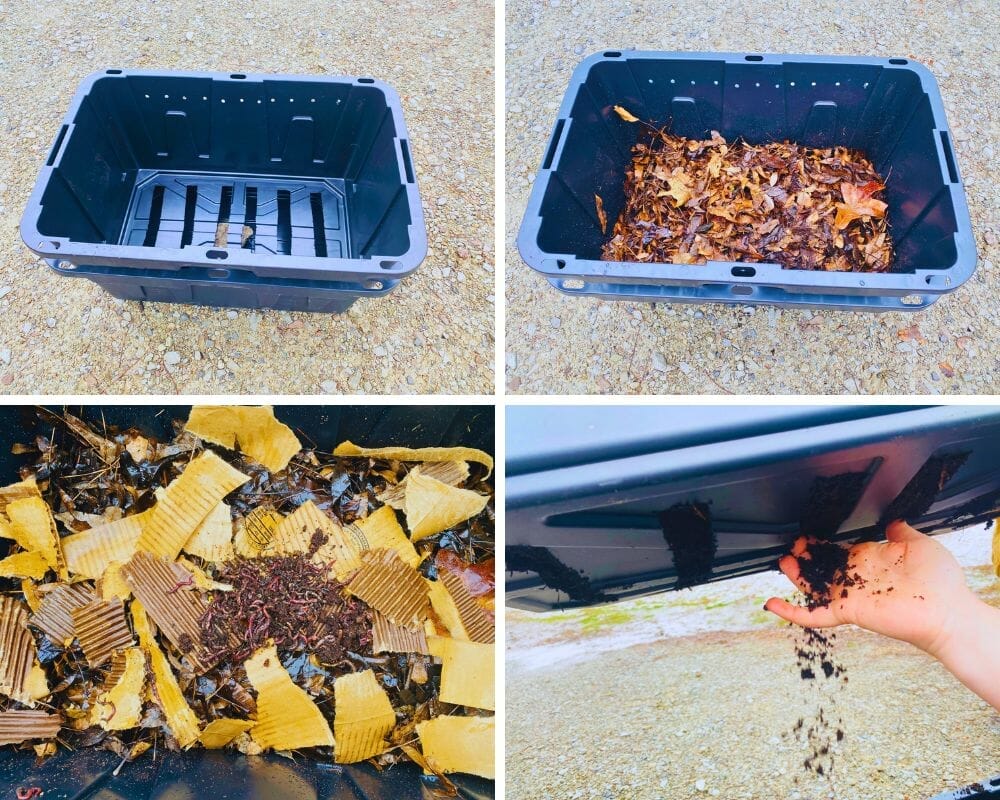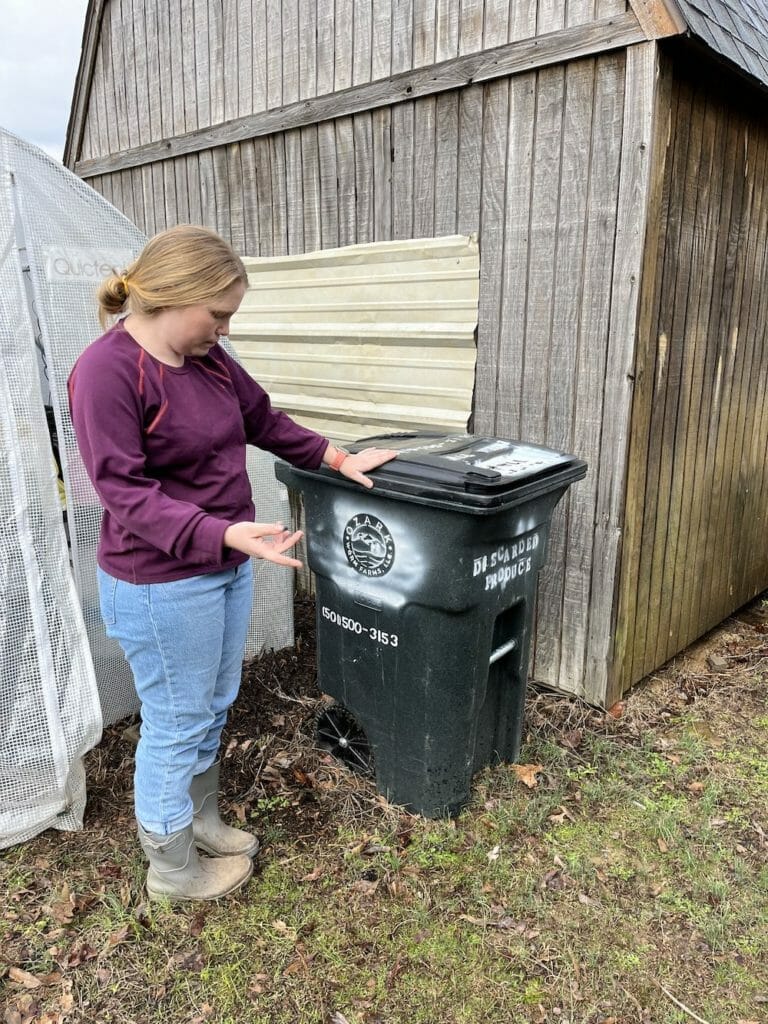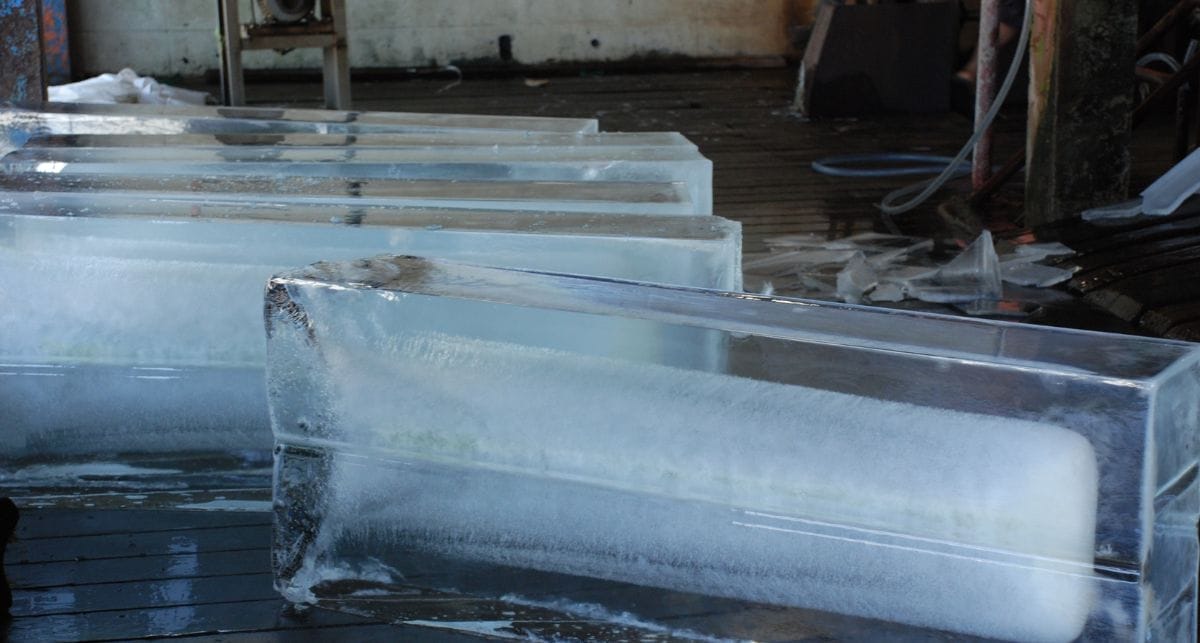

Uh oh...
It appears that you're using a severely outdated version of Safari on Windows. Many features won't work correctly, and functionality can't be guaranteed. Please try viewing this website in Edge, Mozilla, Chrome, or another modern browser. Sorry for any inconvenience this may have caused!
Read More about this safari issue.

When you think of farming in Arkansas, you likely imagine vast soybean, rice and cotton fields, rows and rows of chicken houses and green pastures filled with cattle. If you think long enough, you will probably recall a local flower farm, pig farm, pumpkin patch, pecan grove or fruit orchard. What you probably didn’t think of was worm farming.
Worm farming? Yes! It’s a thing, and it’s a pretty important thing. Worm farming is happening right here in Arkansas. If you want to improve your backyard flower or vegetable garden or reduce food waste, listen up. Ozark Worm Farms in Searcy is dedicated to helping local businesses, and people like you make a positive environmental impact.
You probably have many questions and a few assumptions about worm farming running through your mind. I did, too, so I recently paid a visit to the Ozark Worm Farms. I got my hands dirty and asked many questions to fill you in on all the details.

Ozark Worm Farms
Both nurses by profession, Heath and Erin LaFavers began a backyard worm farm in 2020 when they were looking for something to fill their time during COVID lockdowns. Erin grew up on a flower farm, so her interest in creating valuable soil and fertilizers came naturally. Heath’s interest was piqued by a few YouTube videos and a desire to turn their backyard into a small homestead.

What began with an order of 150 or so Red Wiggler (Eisenia fetida) worms quickly turned into a passion for the LaFavers and their three children. It didn’t take long to realize that the castings and the worms themselves were something people across Arkansas needed to know more about.
With a growing community interest in back-to-roots farming, people were searching for ways to become more self-sufficient, sustainable, and less reliant on commercial products and chemical fertilizers. Those little red wiggler worms are the answer many of these people were seeking, and the LaFavers were poised to fill that need.

Vermiculture
Vermiculture is a fancy Latin word that means worm farming. It’s the process of utilizing worms to turn organic waste (like food scraps) into some of the most nutrient-rich fertilizers on the planet. Modern farming and gardening practices rely heavily on chemical fertilizers and pesticides. The result is soil wholly depleted of its nutrients and thus begins a vicious cycle of needing more commercial products to force the soil to grow plants.
Worm farming offers a simple solution to the soil problem and provides an answer to managing kitchen waste. The LaFavers are running a larger-scale operation, allowing them to breed worms for sale and create rich soil from kitchen scraps and other organic matter that can be sold directly to the consumer.

Why Worms?
Many backyard gardeners turn to compost to supplement their garden soil. Creating and maintaining a successful backyard composting operation can take much work and trial and error and often yields less-than-stellar results. Many gardeners will admit that they have tried composting but quickly returned to buying commercial soil that was not only expensive but also low quality. Using worms can simplify and expedite the composting process making it much more attainable for anyone who wants to reduce waste and create top-quality garden compost.
The LaFavers chose the Red Wiggler worms with a purpose. These worms are smaller than earthworms found in your home garden and are surface dwellers that typically remain in the top 6 inches of soil. They thrive on fresh organic waste and can consume half their body weight daily. They can also double their population in about 60 days, which makes them highly efficient at processing waste.
As the worms consume food waste, brown matter and animal manure, they produce a byproduct known as worm castings. The castings are a gentle and effective way to provide nutrients to plants and enrich and improve soil quality. The castings are also sometimes called “black gold,” and when you see and feel the quality, you’ll begin to understand why.

Using Worms At Home
The LaFavers turned a backyard hobby into a family business and strive to bring two quality products to consumers. Those looking to supplement their garden soil immediately can purchase worm castings which will be shipped directly to their front door. Those looking to reduce waste and create an ongoing supply of worm castings can order live worms from the Ozark Worm Farms and create a miniature worm farm with just a few inexpensive supplies.
To create your own backyard worm bin, you will need the following:
- 2 plastic tubs (27-gallon, or whatever you can find)
- Scissors
- Newspaper
- Crushed leaves
- Drill (or something to poke air holes with)
- Peat moss or some loose soil
- Kitchen scraps (collection bucket)
- (Optional) spigot
- Live worms from Ozark Worm Farms
The work bin consists of two plastic tubs layered inside each other. Cut openings in the top tub to create a slatted bottom and drill air holes in the sides. The bottom bin can be left alone as this will be used to catch the leachate (worm pee) that the worms secrete. Fit the two bins together and layer the top tub with newspaper, peat moss, kitchen scraps, leaves and cardboard. Introduce your worms and let them eat. As the worms break down the material, you will continue adding more kitchen waste, leaves and paper for the worms to break down. When ready to harvest castings, lift the top bin and gently scrape your hand along the slatted bottom to loosen the worm castings. To get the full step-by-step instructions click here.

Community Impact
In addition to selling worms and worm castings, the LaFavers fell in love with worm farming because of the ability to use it to create a positive community impact. Globally, food waste contributes to nearly two billion pounds of material being sent to landfills yearly. As food waste rots, it releases methane gas and other greenhouse gases that significantly contribute to global warming.
Worm farming is a great way to eliminate this kind of waste, even beyond the Lafaver’s own kitchen. They have partnered with several Searcy area businesses to collect used coffee grounds and vegetable scraps by placing collection bins and picking them up regularly. Every pound of waste collected is a pound of garbage saved from the landfill. The Ozark Worm Farms can calculate each business’s contribution giving them a selling point to their customers who are also concerned about environmental impact.

Heath LaFavers and his wife, Erin, own Ozark Worm Farms, LLC, a worm farm just outside of Searcy. Their passions include gardening, playing outdoors with their three children, bees, chickens, and anything to keep them outside. Ozark Worm Farms has been in business since 2021 and is quickly becoming a name to be recognized in horticulture in Arkansas. They sell worms for do-it-yourself worm bins, which allow people to create their own soil from food waste at home. They also have been one of the leading proponents of worm farming and composting worm sales in Arkansas. Heath has taught sustainable gardening courses in the past, and he and his wife are both active Master Gardeners in White County. Lecturing, blogging and intersecting with hobby homesteaders are on the horizon this year for them as they continue to grow their business in this exciting and new sustainable industry.
Visit Ozark Worm Farms online or on Facebook for more information.
We do the work.
You check your email.
Sign up for our weekly e-news.
Get stories sent straight to your inbox!












 Leave a Reply
Leave a Reply
[…] the most reliable online supplier of worms in Arkansas. It’s what we do! We are proud to ship our Arkansas red wiggler fishing worms and composting worms all over the continental United […]
[…] can easily make dirt from your kitchen scraps with a simple plan at home. Of course, companies like Ozark Worm Farms, Food Loops, or Ozark Compost create compost for purchase, but this is an easy project you can […]